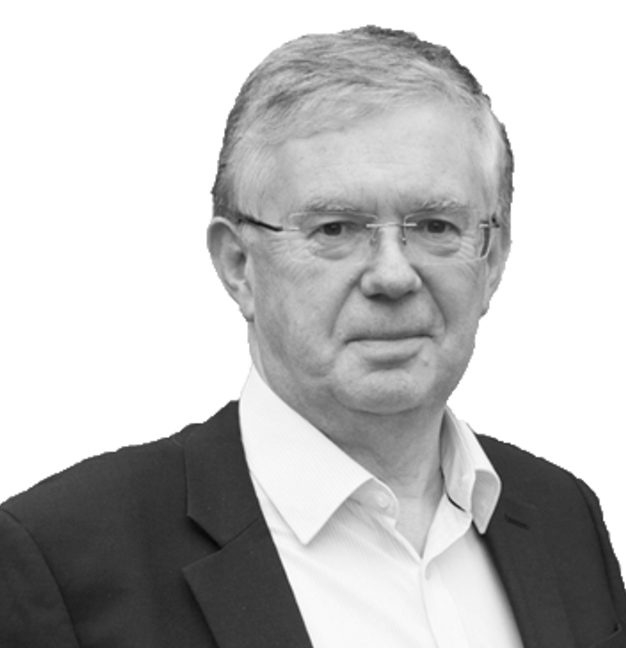It certainly made me chuckle. These days, my surgical colleague would have got into all sorts of trouble for writing it, but as a clinic letter from a consultant to a GP it could not have been more to the point. “Dear David”, he wrote, “Lump gone. Pain gone. Patient gone”.
Correspondence like that has now rightly been relegated to a very different era, but it certainly had the benefit of brevity. It was clear. It was short. It was accurate. And it was patronising. Had clinic letters been copied to patients in those far-off days, would our mutual patient have appreciated it, or felt belittled? Back then, the thought never even crossed my mind. But the challenge of clear communication really does matter.
Fifteen years ago, the Disability Rights Commission (a precursor to the Equality and Human Rights Commission) asked me to serve on an enquiry panel looking at the physical health care of people with learning disabilities and long-term mental health problems. On our first day, one of the commissioners introduced me to a young man who I will call Andrew, who had very significant learning difficulties and who was also to be a member of the enquiry panel. To my shame, I remember thinking, “Well that seems entirely appropriate. But this can never work. It could all be rather embarrassing. What on earth can he possibly add to the complexity of this challenge?”
And I learned the answer very quickly. He brought clarity. He asked the simplest of questions, which – as we all know – are always the hardest to answer. And he was absolutely intolerant of jargon. Every single time anyone used medical jargon Andrew would interrupt and say, “Excuse me. I’ve no idea what you are talking about. Please talk English”.
And so when some of the academic intellectual experts we were interviewing for the enquiry started their usual modes of presentation, he would stop them in their tracks. “Not a clue what you mean”, he would say. “Please talk English.”
It was fantastic. The rest of us on the panel breathed a sigh of relief. We didn’t have to pretend anymore that we knew what the multiplicity of acronyms all meant. Andrew would ask. We didn’t have to nod knowingly when some obscure research was referenced. He would stop them in their tracks. Andrew taught me so much.
Why do we do it? I have often written and blogged about the problems and dangers inherent in using waffle and jargon, but my criticism has tended to be for the users. I understand why jargon evolves. Most of us simply don’t realise when we are using jargon, because amongst colleagues it often saves time. Acronyms and jargon can be immensely helpful when everyone already knows what you are talking about.
But jargon has recipients too. Don’t we have a responsibility for saying if we don’t understand something? Andrew made it very clear that owning up to ignorance can be immensely powerful. And I also learnt that, when really pushed to explain things simply, all too many of the experts crumbled. They weren’t able to do it. I have long thought that if you can’t explain something simply, you probably don’t fully understand it. It’s a test I apply to myself all the time and keep being appalled at the depths of my ignorance.
But in the real world – in the clinic, in the surgery, in the tutorial, in the seminar, on the Board – the power balance is all wrong. One side typically feels intimidated. Reluctant to confess to ignorance. Reluctant to be an Andrew and say, “Sorry. I’ve no idea what you are talking about”. At the end of the day, neither the speaker nor the listener goes home any the wiser.
So what is the answer? Well, I think we need to start viewing clarity as a strength. There is now research that suggests that jargon is a tool that people use when they feel insecure about their position. It should not be difficult to talk like a normal human being, but in a profession with technical intricacies it is a challenge and it takes courage. We need to support each other and encourage each other to make the effort. Language matters, words are powerful, let’s be deliberate about how we use them.

Sir David Haslam CBE
After a lifetime as a GP, David Haslam is currently part of Kaleidoscope Health and Care, Professor of General Practice at the University of Nicosia, Chair of the cancer charity CLIC Sargent, and a Non-Executive Director of Dorset HealthCare University NHSFT. He is also past President of the BMA, past Chair and President of the RCGP, and past Chair of the National Institute for Health and Care Excellence (NICE).
Declaration of interests
I have read and understood the BMJ Group policy on declaration of interests and declare the following interests: none of direct relevance to this blog.